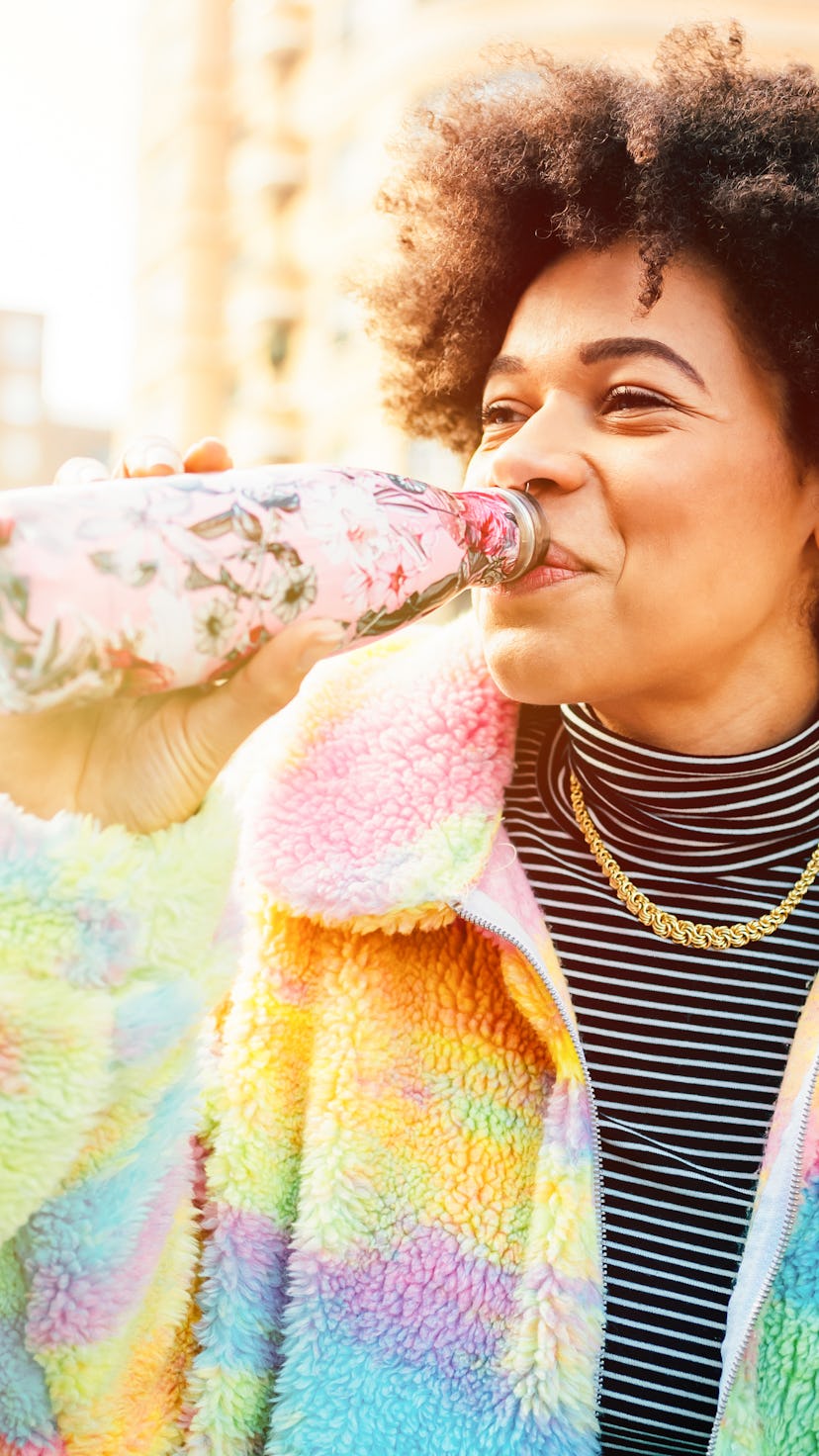Shutterstock
According to data from a new Post-consumer Plastic Recycling Data Report, recycling rates were 5.7% lower in 2020 than they were in 2019. The reason? What you recycle doesn’t always get processed, says Boxed Water CRO Robert Koenen.
d3sign/Moment/Getty Images
2. Refuse Single-Use Plastics
Say no to plastic straws, cutlery, takeout containers, and any other single-use plastic item that’s offered to you, Koenen says.
There are a lot of great sustainable options that are transportable, like silicone straws, that make great replacements.
Shutterstock
3. Avoid Aluminum
Even though it may seem like a better choice than plastic, aluminum is just as bad for the environment, Koenen warns. It’s made from non-renewable resources and also ends up in landfills, so skip cans as well.
Shutterstock
4. Carry Shopping Bags
Grab a reusable shopping bag whenever you leave the house, or keep a pile of bags in the back of your car. “That’s an easy thing to do,” Koenen says. “Just keep throwing them in your car.”
Shutterstock
6. Be Aware Of Micro-Plastics
Research your most used body care products — like toothpaste and face wash — to see if they contain micro-plastics.
By 2050 there will be more plastic in the ocean than fish, Koenen says, and a lot of it will be teeny tiny plastics that come from these items.
Shutterstock
7. Shop From Sustainable Companies
When possible, buy from eco-friendly companies. Think: plastic-free cleaning brands or sustainable clothing brands. “The more you buy from these people, the more they’ll build,” Koenen says.
Westend61/Westend61/Getty Images
8. Vote With Your Dollar
By showing interest in sustainability, you’ll send a message to less environmentally-friendly companies. They’ll then want to hop on board and be more sustainable themselves, Koenen says.
It’s a ripple effect. “It comes down to one person, one vote, one dollar, each time.”
Shutterstock
10. Go To Clean-Up Days
About 9 million tons of plastic find its way to the ocean every year, Koenen says. Help lower that number by using fewer plastic items and by going to river and beach clean-up days to pick up stray bottles, cans, and bags.
recep-bg/E+/Getty Images
11. Contact Your City
Write or call your city’s recycling program and ask if the items you recycle are actually being recycled. If certain items aren’t recycled, Koenen suggests asking them to make a change and following up until they do.
Shutterstock
Make One Small Change
Even though the plastic problem may seem insurmountable, all these small changes add up. “Many hands make light work,” says Koenen. “There are 300 million people in this country. If you do one thing 300 million times, that makes a big difference.”
